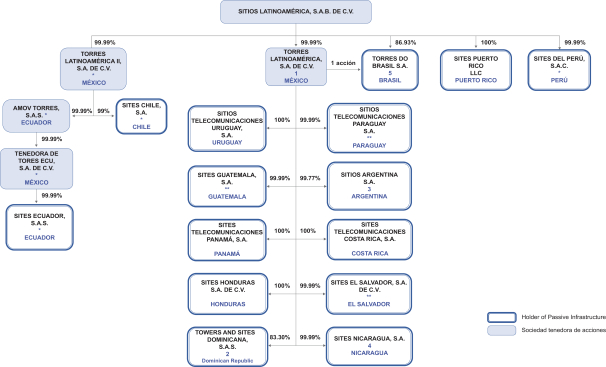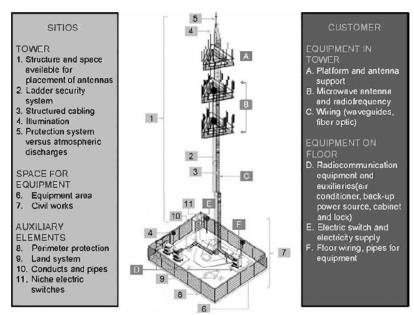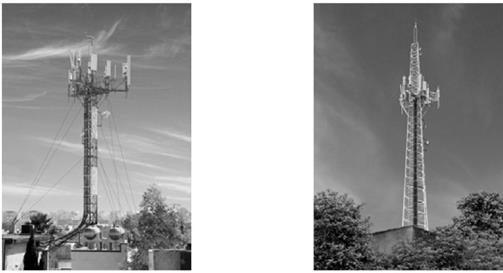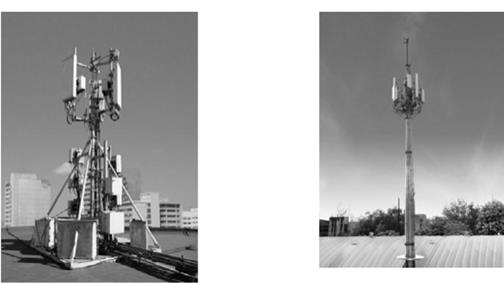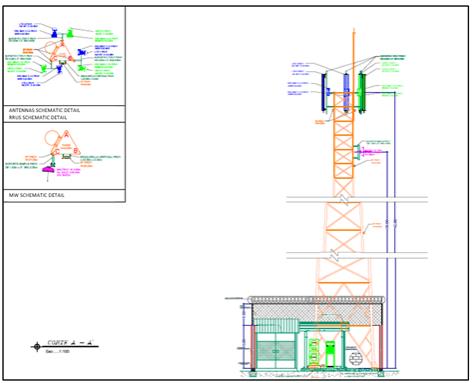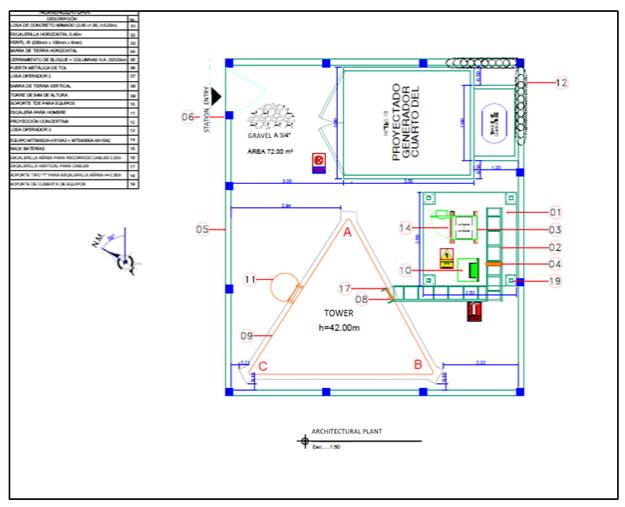Costs could increase and revenues decrease due to perceptions of health risks from radio emissions, especially if those risk perceptions prove to be well-founded
Public perception of potential health risks associated with cellular telephones and other wireless communications could hinder the growth of radio communications service companies. In particular, negative public perception of health risks, as well as regulation related to such risks, could compromise market acceptance of wireless communications and increase opposition to the development of Passive Infrastructure. The potential relationship between the emission of radio frequencies and certain health or environmental effects have been the subject of studies by the scientific community in recent years, and numerous health damage lawsuits have been filed against wireless carriers and manufacturers of the corresponding equipment. If a scientific study or a court decision were to show that radio frequencies pose health risks to consumers, it could adversely affect telecommunications operators and the markets for wireless or related telecommunications services, which could have a material adverse effect on Sitios’ business, results of operations and financial condition.
Failure by Sitios to comply with the laws and regulations applicable to its business, which may change at any time, could result in penalties and even the loss of certain rights within certain areas of its business
Sitios’ business is regulated by various laws and regulations. Any failure by Sitios to comply with regulations could result in the imposition of penalties and damages. There can be no assurance that current or future legislation and regulation, including on tax matters, will not restrict Sitios’ business or cause it to incur additional costs. These factors could have a material adverse effect on its business.
Sitios’ Passive Infrastructure could be affected by natural disasters and other unexpected events for which its insurance does not provide adequate coverage
Sitios’ Passive Infrastructure is subject to risks associated with natural disasters, such as storms, tornadoes, floods, hurricanes, earthquakes, earthquakes and fires, as well as other unexpected events, such as sabotage, theft or vandalism. Any damage or loss to elements of Sitios’ Passive Infrastructure or its databases could affect its ability to provide services to customers. Although Sitios will have insurance coverage for natural disasters, such coverage may be insufficient or inadequate to cover the costs of repair or reconstruction of force majeure events.
Sitios is a holding company that, although it will generate income on its own account, will depend on dividends and other resources from subsidiaries to pay dividends to its shareholders, to the extent that it decides to do so
Sitios is a holding company and its operations are conducted primarily through its subsidiaries. As a result, its ability to pay dividends depends primarily on the ability of its subsidiaries to generate revenues and pay dividends to it.
The payment of dividends by Sitios’ subsidiaries also depends on its subsidiaries’ earnings and business considerations. In addition, the right of Sitios to receive any assets of any subsidiary as a shareholder of such subsidiary, its liquidation or reorganization, will be effectively subordinated to the rights of the creditors of such subsidiary, including trade creditors.
The delay, failure or refusal of various levels of government to grant the operating subsidiaries of Sitios permits and licenses for the operation and expansion of its Passive Infrastructure network could adversely affect its financial condition, results of operations and have a material adverse effect on its business
In the markets in which Sitios operates or will operate, there may not be a regime that provides certainty with respect to permits, authorizations and licenses for the installation of radio communications sites and the determination of the respective costs. Because authorities at different levels of government may from time to time establish different requirements for obtaining specific authorizations, often concurrent at the same location, Sitios may not be able to execute its expansion plans on schedule or at all if it does not obtain the required authorizations from different levels of government. The delay, lack or denial of the necessary authorizations to maintain and expand Sitios’ network could adversely affect its ability to install or maintain radio communication sites, resulting in a material adverse effect, a decrease in operating results and an impairment of Sitios’ financial condition.
If Sitios is unable to renew the site agreements or enter into new site agreements with respect to the available space on the Passive Infrastructure owned by the Operating Subsidiaries, or if Sitios is unable to maintain the rates, Sitios’ profits could be adversely affected.
Sitios cannot assure you that all site agreements will be renewed when their term expires and/or that new agreements will be entered into or entered into at the same or higher rates. Sitios cannot assure that new site agreements may be entered into on favorable terms, or at all. In addition, Sitios will continue to develop and acquire sites as part of its growth strategy. To the extent that the capacity to host customers on the Passive Infrastructure, which the Operating Subsidiaries own, remains unoccupied for extended periods of time, Sitios may receive lower or no revenues from such sites, which could affect financial condition and results of operations.
Site agreements may cause Sitios to not receive revenues in the event that the sites are damaged, in whole or in part. In the event that some or all of the sites are damaged, in whole or in part, as a result of various circumstances, including natural disasters, Sitios may not be able to continue to receive revenues, which could have a material adverse effect on its financial condition and results of operations.
Sitios is exposed to risks arising from the development, maintenance and expansion of its passive infrastructure, including the need for ongoing capital expenditures.
Sitios’ ability to maintain high levels of service depends on its ability to develop, maintain and expand the Passive Infrastructure. This situation requires significant amounts of capital, various long-term expenditures and depends on its ability to assess the condition of its Passive Infrastructure assets, as well as to obtain sufficient financing to fund these maintenance and expansion projects.
28
